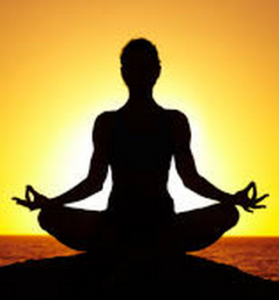Yoga
What is Yoga?
Traditionally, there are four paths of yoga. Although each of them is a complete discipline in itself, it is best not to follow one path only. Combining the four practices helps the emotional, intellectual, and physical aspects of your life to develop in harmony.
Meaning of Yoga
The word yoga means ‘unity’ or ‘oneness’ and is derived from the Sanskrit word ‘yuj’, which means ‘to join’. This unity or joining is described in spiritual terms as the union of the individual consciousness with the universal consciousness.
The four paths of yoga
Of the four yogic paths, in the West only one is generally well-known and widely practiced – the physical and mind-focusing path of Hatha and Raja Yoga, which includes postures and breathing exercises.
HATHA AND RAJA YOGA

This is the yogic path of body and mind control. It is best known for its practical aspects, particularly its asanas (postures) and pranayama (breathing exercises),This path teaches ways of controlling the body and mind, including silent meditation, and its practices gradually transform the energy of the body and mind into spiritual energy, this path suits people who are looking for inner and outer transformation.
KARMA YOGA

This is the yogic path of action and you practice it when you act selflessly, without thinking about success or reward. This path is valued for purifying the heart and reducing the influence of the ego on your words, actions, and interaction with others. Practicing Karma Yoga is the best way to prepare yourself for silent meditation (see p204). It suits people with an active, outgoing temperament.
BHAKTI YOGA

This is the yogic path of devotion. It involves prayer, worship, and ritual, including chanting and singing devotional songs, and those who practice it eventually come to experience God as the embodiment of love. This yogic path has great appeal for people who are emotional by nature.
JNANA YOGA

This is the yogic path of wisdom or knowledge, and it involves studying the philosophy of Vedanta – one of the six classical Indian philosophies. It teaches ways to examine the self and analyze human nature. The goal of this form of yoga is to recognize the Supreme Self in yourself and in all beings. This path is best suited to intellectual people, and is considered by many to be the most challenging path.
